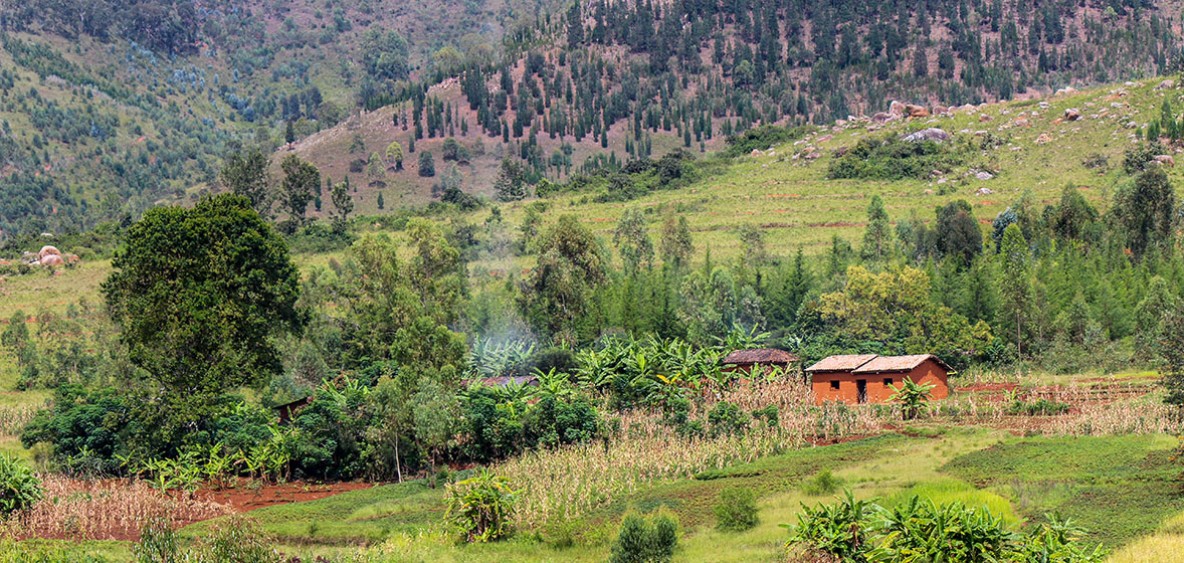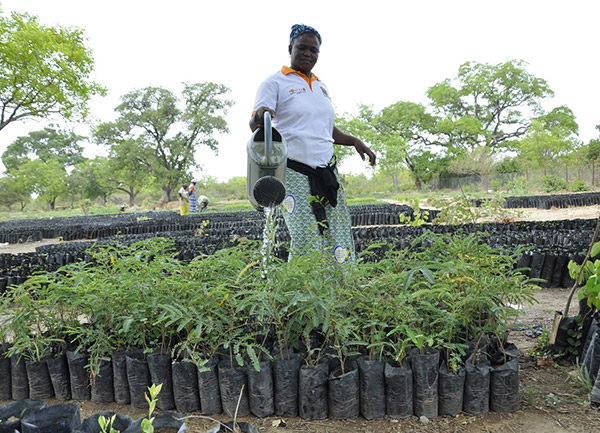
The FAO, in partnership with the Government of Burundi, is working with Farmer Field Schools to train farmers in land and water conservation techniques.
Food security is one of the greatest challenges facing Burundi—roughly 85 percent of Burundian households face daily food insecurity. The country’s economy is dominated by small-scale, rain-fed subsistence agriculture, the primary source of food and income for more than 90 percent of the total population. Due to significant land degradation, Burundi is threatened by a decline in agricultural production, loss of agrobiodiversity, food shortages, chronic malnutrition, rural-urban migration and increased vulnerability to climate change.
Through the Resilient Food Systems programme, the Food and Agriculture Organization (FAO), in partnership with the Government of Burundi, is working to combat the key challenge of biodiversity loss and land degradation in order to improve food security and resilience to climate change in rural communities. The RFS Burundi project is working closely with Farmer Field Schools (FFS), cooperatives, and watershed committees at the community level to reach over 8000 beneficiaries.
During the first year of implementation, FAO has used Farmer Field Schools (FFS) as the primary vehicle for training farmers in land and water conservation techniques. FFS provide a space for hands-on group learning, knowledge exchange, and direct observation, discussion and decision-making. FFS activities are field-based, which means they reflect specific local contexts and allow for experimentation and collaboration for problem solving.

Thanks to the training provided by FAO, members of the FFSs are becoming “experts” within their field. Training has focused specifically on combatting soil erosion through contour planting. Contours are level lines across a slope that create vegetative barriers that prevent soil movement and improve water retention, thereby improving soil health and agricultural productivity. Prior to the FFS straining, RFS beneficiaries had little knowledge of the use of contour planting for soil protection. "Thanks to the training provided by the project, we are ready to participate fully in this initiative. We have plotted 12,541 meters of contour lines and installed 16,617 plants over this distance," said the President of the Tujehamwe Kibenga-Migende FFS in the Musigati commune. The Tujehamwe Kibenga-Migende FFS will soon install 20,000 eucalyptus plants and 15,000 calliandra plants in addition to tracing an additional 15,000 meters of contour lines.
FFSs in the Muramvya province have worked to raise awareness of the importance of tree conservation and environmental protection. Community members are learning the role that trees play in rebuilding soil health, improving water absorption, and preventing soil erosion. Beneficiaries are now committed to adopting new cookstove technologies and protecting existing forests from overexploitation, as well as planting new trees to counter deforestation. "We have adopted improved stoves to protect our forests. The more households multiply, the more traditional cooking stoves increase and the environment suffers," said Hakizimana Elizabeth, President of the Dukingirisiyacu FFS. He said trees not only protect the environment, but also provide an important source of income generation for the community.
Through the FFS approach, FAO has created an platform through which local knowledge and outside scientific insights can come together to be tested, validated and integrated into existing local agricultural practices. So far, the rate of uptake and behaviour change from the FFS approach has been promising. The lessons and good practices that have emerged from the FFS platforms in Burundi will support the replication and scaling-up of the project results throughout the country as well as other in other RFS country projects.
Subscribe to our monthly newsletter to receive updates on stories directly from the field across all our projects, upcoming events, new resources, and more.